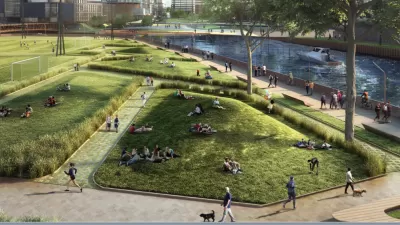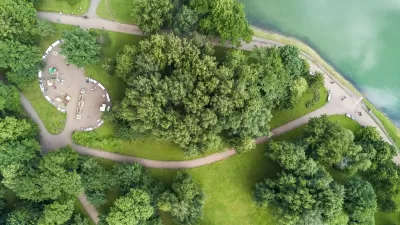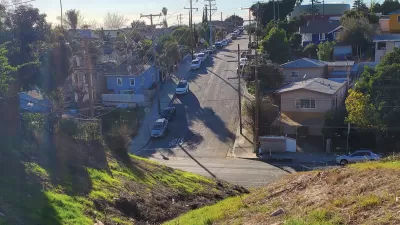In a much-hyped address earlier this week. Mayor Rahm Emanuel chose the title "Building on Burnham" to describe his survey of the Chicago's ongoing and future plans to develop parks and open space.
"Mayor Rahm Emanuel on Tuesday delivered a feel-good litany of achievements and goals on his efforts to improve Chicago's parks as he tries to improve his standing with Chicagoans in general," reports John Byrne.
Bryne adds: "Emanuel used his parks address to attempt to connect with lower-income Chicagoans, repeatedly returning to the theme of access to nature and recreational activities for children all over the city whose parents in many cases can't afford to take them on trips."
The article also includes a rundown of the projects and proposals listed by Mayor Emanuel during the speech. Byrne notes that many of the higher-profile plans in the speech, "already had been released before Emanuel spoke." Going one step further, Byrne also assesses the speech this way: "It's the latest example of the mayor slapping a quotable title on a speech to try to help it gain traction and underscore that he means it to have special significance."
Writing for Next City, Kelsey E. Thomas aggregates the collected response of local media to the mayor's speech, all of which have the same tone of skepticism. The Next City article is headlined, at least, by a quote from the mayor, describing the Chicago River as the city's "Next Great Recreational Park."
As for the aforementioned survey of local media coverage, Zach Long writes for Time Out Chicago, and Fran Speilman writes for the Chicago Sun-Times.
FULL STORY: Emanuel makes parks pitch

Alabama: Trump Terminates Settlements for Black Communities Harmed By Raw Sewage
Trump deemed the landmark civil rights agreement “illegal DEI and environmental justice policy.”

Planetizen Federal Action Tracker
A weekly monitor of how Trump’s orders and actions are impacting planners and planning in America.

The 120 Year Old Tiny Home Villages That Sheltered San Francisco’s Earthquake Refugees
More than a century ago, San Francisco mobilized to house thousands of residents displaced by the 1906 earthquake. Could their strategy offer a model for the present?

In Both Crashes and Crime, Public Transportation is Far Safer than Driving
Contrary to popular assumptions, public transportation has far lower crash and crime rates than automobile travel. For safer communities, improve and encourage transit travel.

Report: Zoning Reforms Should Complement Nashville’s Ambitious Transit Plan
Without reform, restrictive zoning codes will limit the impact of the city’s planned transit expansion and could exclude some of the residents who depend on transit the most.

Judge Orders Release of Frozen IRA, IIJA Funding
The decision is a victory for environmental groups who charged that freezing funds for critical infrastructure and disaster response programs caused “real and irreparable harm” to communities.
Urban Design for Planners 1: Software Tools
This six-course series explores essential urban design concepts using open source software and equips planners with the tools they need to participate fully in the urban design process.
Planning for Universal Design
Learn the tools for implementing Universal Design in planning regulations.
Clanton & Associates, Inc.
Jessamine County Fiscal Court
Institute for Housing and Urban Development Studies (IHS)
City of Grandview
Harvard GSD Executive Education
Toledo-Lucas County Plan Commissions
Salt Lake City
NYU Wagner Graduate School of Public Service





























